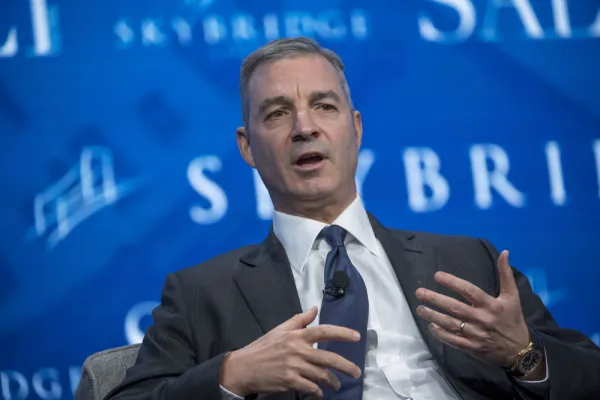Hedge fund investors are still paying hefty fees for the privilege of underperforming the markets, but at least those fees are shrinking. According to Preqin, just 42 percent of single-manager hedge funds still charge a 2 percent management fee and 20 percent performance fee. Rather, the mean management fee for single manager hedge funds globally is now 1.60 percent, while the mean performance fee is 18.69, down from 19.20 percent in 2011. In North America, the mean fees are 1.65 percent and 19.70 percent for management and performance fees, respectively. The only strategy to charge 20 percent or more of performance gains is statistical arbitrage, at 20.98 percent. Its average management fee is 1.74 percent, a tad less than the two most expensive strategies for management fees: multistrategy (1.75 percent) and macro (1.76 percent). Of course, if these funds could snap their four-year underperformance streak, investors might give them more slack on the fees.
Uh oh: another indicator suggests hedge fund managers are very bullish. Aksia, a hedge fund research and advisory firm, says a survey of 168 major hedge fund managers concludes that managers are bullish on financial assets and are generally comfortable with the stability of financial markets. They are also much less concerned about a large-scale sell-off of assets by the European banks than they were a year ago and are warming up to emerging markets and European equities. This is a little worrisome. As we noted last month, BofA Merrill Lynch has found from one of its surveys going back several years that whenever hedge fund net exposure to equities is greater than 35 percent, the S&P 500 goes down, on average, by 4 percent to 5 percent over the subsequent four weeks. The moral here: We would feel more comfortable if hedge funds were bearish.
UBS has trimmed its price target on American International Group, the third most popular stock among hedge funds at the end of the third quarter. The investment bank, which rates the stock Neutral, reduced its target to $35 from $36. The insurance giant estimated that its losses from Superstorm Sandy would be $2 billion, double what UBS had figured. It also reduced its 2013 and 2014 earnings estimates, saying it was mostly due to a change to when it expects a share repurchase.
More investment news from regulatory filings: Stephen Mandel's Lone Pine Capital reported a passive, 5.2 percent stake in retailer Dollar Tree. Silver Point Capital, L.P. reported its owns 7.8 percent of Nexstar Broadcasting Group in a filing that indicates the investment is passive.
Peter Clarke is retiring as chief executive of alternative investment firm Man Group and plans to resign from the board at the end of February. He will be succeeded as CEO by Emmanuel Roman, currently president and COO, who joined the firm when Man acquired GLG Partners in 2010. Clark, who took over in 2007, has been under pressure of late as investors continue to pull money from Man’s funds. Investors yanked $2.2 billion in the third quarter alone from the firm’s poor performing AHL Diversified fund, which was down 2.9% through November 27, 2012 after losing 6.8 percent in 2011. Its AHL Evolution fund has fared better; it was up 18.32% through November 16.
You think single manager hedge funds are having a tough time? Well, funds of funds are faring worse. According to industry tracker eVestment Alliance, the average hedge fund of fund is up just 3 percent through October. This compares with 4.86 percent for single-manager funds and 14.29 percent for the S&P 500. Little surprise, then, that estimated assets under management in funds of funds fell to $888.9 billion at the end of the third quarter, down $1.1 billion for the year. As a result, funds of funds’ share of total hedge fund assets has dropped to a record low of 34 percent, according to eVestment Alliance.





